2024 Inductees
2024 Scholars
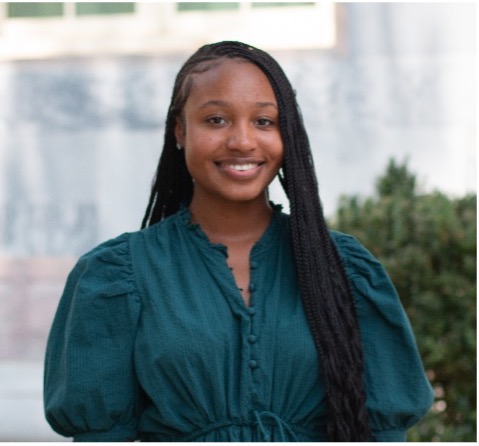
Taylor Hailstock is a candidate for the Ph.D. in biochemistry, cell, and developmental biology (BCDB) at Emory University. Her research focuses on the characterization of a conserved translational regulator in Drosophila to uncover the neurodevelopmental underpinnings of microcephaly, a rare congenital birth defect. Taylor has been recognized as a Centennial Scholar Fellow, Emory Diversifying Graduate Education (EDGE) Student Ambassador, and was nominated for the Kharen Fulton Diversity Graduate Award. As well, she received a Bachelor of Science in Biology from Bowie State University (BSU; cum laude), where she was a recipient of the 4.0 Award and named Student of the Year.
She received a Master of Science in Biotechnology with a concentration in stem cell and regenerative technologies from Johns Hopkins University, as a dean’s list honoree. Taylor has since procured concurrent awards to all fund research, conference, and training endeavors; notably including study abroad under field pioneers at the Hebrew University of Jerusalem, Israel. She has been an avid champion for increased diverse representation in biological sciences as featured in a televised documentary, “Women of Color in STEM – Past, Present, and Future” Part 1” and BSU state-wide billboard and digital campaigns, “BE BOLD.”
She remains a devoted advocate as policy chairperson of the BCDB DE&I Committee; where she conceived organizational constitutions and bylaws, initiated DE&I-focused recruitment activities, and petitioned for program-standard DE&I lab/website signage implementation. Taylor aspires to redistribute her passions to policy work- at the intersection(s) of science, technology, law, and communication, to reform existing barriers in STEM for historically marginalized groups.
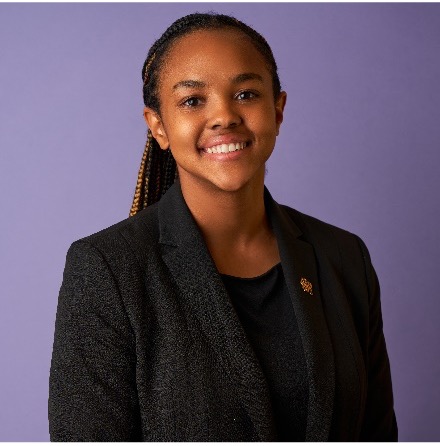
Jakari Harris is a candidate for the Ph.D. in Biomedical Engineering at Georgia Institute of Technology and Emory University. Her research focuses on 3D printing pathological heart models for surgical planning. Jakari has received the National Science Foundation (NSF) Graduate Research Fellowship and has been accepted into the Southern Regional Education Board (SREB) Doctoral Scholars Program (DSP). On campus, she currently serves as the GT Black Graduate Student Association President, an Emory Diversifying Graduate Education (EDGE) Ambassador, and a Project ENGAGES Mentor. She received a Bachelor of Science in Chemical Engineering from Hampton University, where she was a Freddye T. Davy Honors College Scholar.
Jakari is very passionate about teaching and mentoring. She enjoys giving back to her community in STEM outreach exposure as well as teaching golf classes to youth in underserved communities. Ultimately, Jakari aspires to bring real-world applications of BME to academia as a faculty member and create more research opportunities for HBCU students.
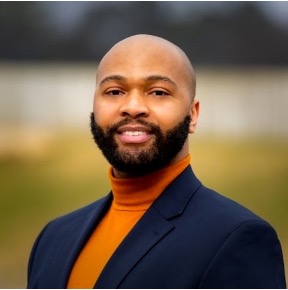
Louis B. Hopkins is a PhD candidate in the Immunology & Molecular Pathogenesis program at Emory University. His research focuses on understanding immunosuppressive mechanisms of tuberculosis and improving vaccines and host-directed therapies against the disease. Louis has been recognized as a Centennial Scholar and has been selected as the Herz Global Health Impact Scholar by the ARCS Foundation. He received his Bachelor of Science in microbiology from Cornell University, where he was part of the Biology Scholars Program. Louis serves as a leader in the Emory community as the Vice President of the Division Student Advisory Council (DSAC), an organization that serves as a liaison between the student body and university leadership.
After obtaining his PhD, Louis will pursue an American Society for Microbiology (ASM) fellowship in clinical and public health microbiology with the goal of becoming a board-certified director of clinical and public health laboratories. Addressing health disparities is his greatest motivator to be a scientist. With his advanced training, Louis desires to improve public health initiatives and oversee research and diagnostic efforts.
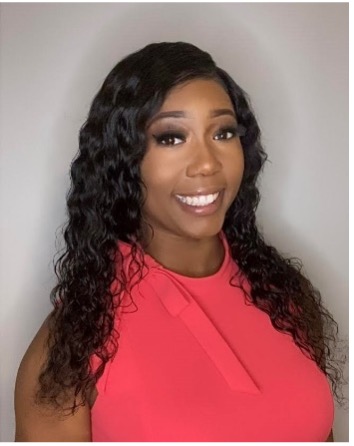
Jada R. Hoyle-Gardner is a FIRST (Fellowships in Research and Science Teaching) IRACDA Fellow in the Rollins School of Public Health at Emory University. Her current work combines her background in Chemistry from Spelman College and her Ph.D. in Environmental Sciences form Florida A&M University. Combining her love for chemistry and health equity, her research investigates utilizing computational and molecular tools to understand the health effects of pollutants on the microbiome of mothers and their infants from low to middle income communities.
In addition to her extensive laboratory skills background, Dr. Hoyle-Gardner has built excellent communication and management skills by training other laboratory colleagues/students. Her love for STEM education and science communication has led her to a place in the classroom teaching introductory biology courses at Emory University and the AUC (Atlanta University Center). She also gives her time as an educational STEM leader to elementary students and high schoolers through tutoring sessions and aiding in fun "laboratory" activities to provide mentorship through their love of learning.
Dr. Hoyle-Gardner plans to be a pillar in STEM education, providing the resources to break down barriers and provide an inclusive teaching environment through community engagement.
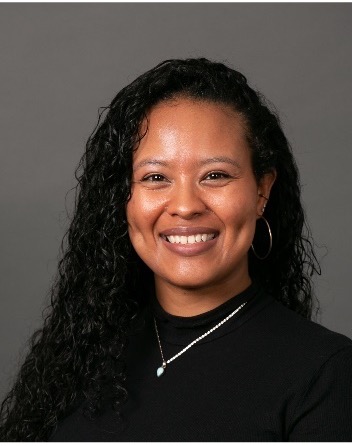
Jarildy L. Javier is a neuroscience PhD candidate at Emory University. Her research is centered around the role of various brain regions, such as the basolateral amygdala, in the processing of social and nonsocial reward. Jarildy received her B.A. in Biology with a concentration in Ecology and Evolution from Colby College. After an international STEM Education fellowship, Jarildy then went on to be a neuroscience postbaccalaureate scholar through Northwestern’s NIH PREP program. Upon admission, Emory awarded Jarildy the Centennial Scholars Fellowship based on her demonstrated academic achievement and contribution to Emory’s diverse student body.
While at Emory, she has gained numerous recognitions including being named HHMI Gilliam Fellow and Neuroscience Scholar through the Society for Neuroscience. In conjunction with her academic accolades, Jarildy has never stopped supporting her people – dedicating time and energy to uplifting students from historically excluded backgrounds. She has been involved in several organizations like Black in Neuro and Cientifico Latino. She has and continues to be an official mentor through the Association for Women in Science and Emory’s neuroscience program. She is an elected Executive Committee representative for the neuroscience program at Emory, advocating for needs to students to faculty and leadership.
Additionally, she is an active supporter of science outreach efforts targeting young future scientists, many from Black and Latinx backgrounds like Letters to a Pre-Scientist and the ATL Science Festival. Jarildy hopes to continue to excel in science while advancing access to science and equity within science for everyone.
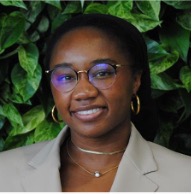
Kristen N. Patterson is a candidate for the Ph.D. in Chemistry at Emory University. Her research centers around developing biopolymer delivery platforms for drug and prodrug candidates. Kristen has been recognized as a National Science Foundation Graduate Research Fellowship Program (NSF-GRFP) awardee. and Emory Diversifying Graduate Education (EDGE) ambassador, where she has served in several leadership roles, including organizing the 2023 Laney EDGE Research Symposium and Summer Opportunities for Academic Research (SOAR) program.
She currently serves as an EDGE Fellow, where she corresponds with a team of ambassadors to promote diversity and recruit prospective students from historically underrepresented backgrounds for Laney Graduate School. She has been awarded a Quayle Ambassador Fellowship by her department to participate in similar recruitment activities. Within her department, she serves as the Graduate Student Representative for her department’s DEI committee. She serves in this position as a member of the department’s Student Advisory for Full Engagement (SAFE) committee, a group of undergraduate and graduate student representatives who work with pre-existing department committees to identify and execute new ways to realize unmet needs within our community.
Kristen graduated from New College of Florida in 2020 with a B.A. in Chemistry and Sociology, where she increased the photocatalytic degradation efficiency of titanium dioxide (TiO2) nanoparticles sensitized with natural pigments towards pharmaceuticals and examined this system with stormwater runoff in a citizen science initiative. She aspires to work in the realm of environmental chemistry, generating biopolymer-based tools to address public health concerns. Ultimately, she wishes to prioritize the people who could be affected by her research at every step of the process, which she believes results in more grounded science with more practical applications outside of a lab environment.
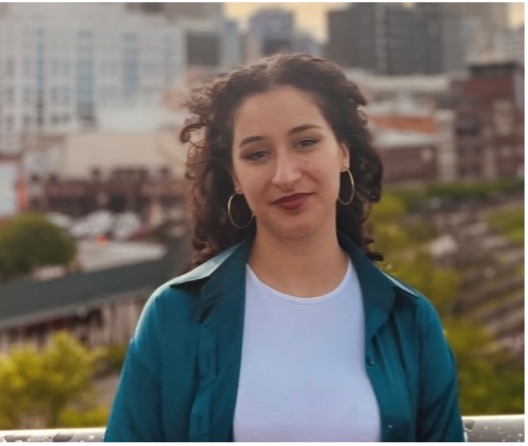
Mariana Rocha is a Ph.D. candidate at Emory University in the Neuroscience doctoral program. Her research focuses on identifying the physiological mechanisms that drive the relationship between traumatic experiences and the development of gestational metabolic disease, specifically in pregnant Black persons. At Emory, Mariana was awarded the Woodruff Scholars Fellowship and the Centennial Scholars Fellowship, in recognition of her academic achievement and promise as a leader.
In 2020, Mariana received a B.S. in Ecology and Evolutionary Biology from Yale University, where she was completed various neuroscience-based research positions as an Amgen Scholar at the NIH and a Yale STARS Fellow. Following graduation, she worked as a post-baccalaureate researcher in Developmental Biology at The University of California Santa Cruz through the NIH-funded baccalaureate research program (PREP).
Throughout her undergraduate and graduate career, Mariana has had an unwavering dedication to advancing educational equity for students from historically excluded backgrounds. She has worked with Cientifico Latino’s Graduate School Mentorship Initiative (GSMI) to help graduate applicants from historically excluded backgrounds apply and attend graduate programs in STEM.
As part of the DEI committee and recruitment team at Emory’s Neuroscience Graduate Program, she has worked on efforts to identify and reduce admissions biases, organized workshops to create financial literacy among graduate students, and led an initiative to incorporate inclusive language into the Neuroscience curriculum. Mariana’s ultimate goal is to work at the intersection between science and health policy in order to reduce racial-ethnic health disparities.
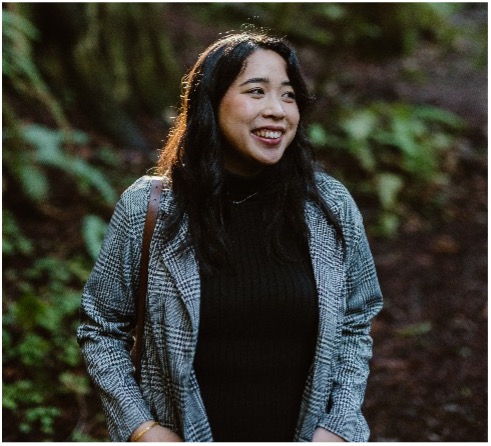
Hanh Truong received her Ph.D. in Cellular Molecular Biology at the University of Michigan and currently is a postdoctoral fellow at Emory University. Her research focuses on studying the role of karyopherins, typically known for nuclear transport, in ciliary transport to impact Hedgehog signaling. As a Vietnamese-American scientist, Hanh was recognized as a Rackham Merit Fellow at the University of Michigan, which aims to sustain the academic excellence and inclusiveness of the graduate community. She also received competitive travel grants and poster awards as a PhD student on her dissertation project in uncovering novel mechanisms of retinal degeneration.
As a postdoctoral fellow at Emory, she is actively engaged in the science community through service teaching and mentoring. She worked with the Next Gen High School Internship program, which is a paid-six-week summer internship program to expose URM high school students to scientific research. She directly worked with two students and discussed her experience working in academia and attaining her Ph.D. She also taught them laboratory practices and the scientific basis for how some of our experiments work in the lab. She also serves mentor in Emory’s Initiative for Maximizing Student Development (IMSD) program, which supports URM students in the biological sciences. She facilitated two IMSD classes on (1) selecting a lab, and (2) developing and maintaining independence while working on research.
Ultimately, Hanh aspires to become a principal investigator and create a safe environment where students can verbalize their insecurities and gain confidence in their abilities to excel as scientists.